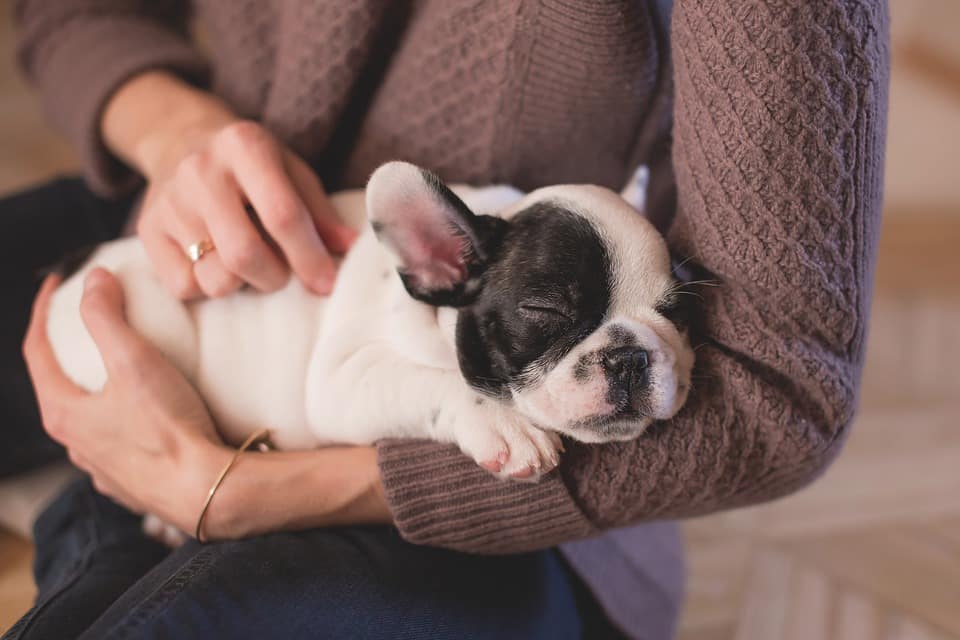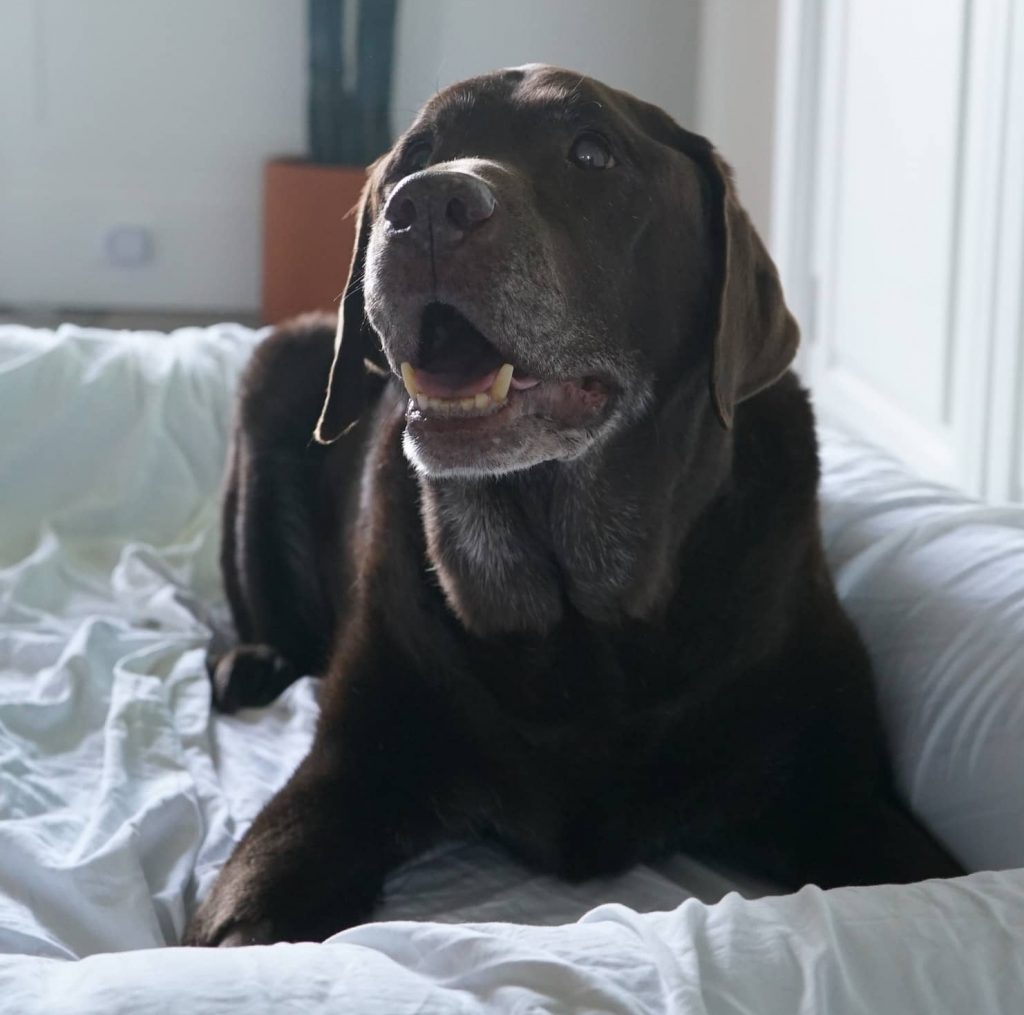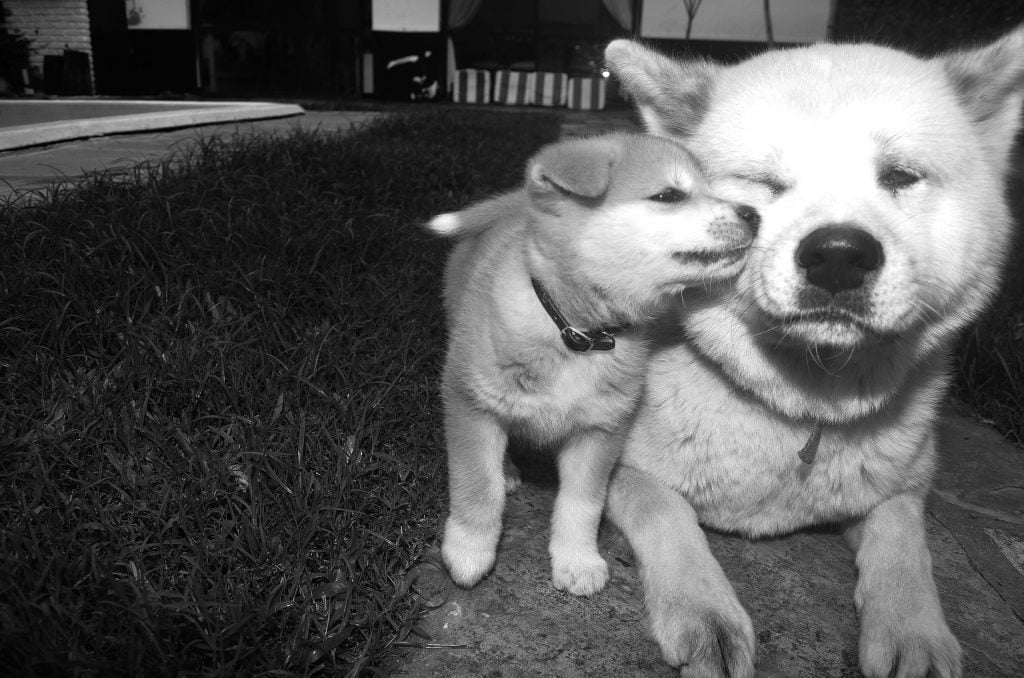Trainer Annie Grossman of School for the Dogs, one of NYC’s most respected dog training centers, has plenty of wisdom to share with dog people. She covers common dog behavior questions and training tips in her weekly podcast. We’ll be sharing some of those responses right here in a regular feature.
Have a training question of your own? Check out Annie’s blog and click on “Ask Annie.”
Dear Annie,
My wife and I have a 13-year-old large mixed breed shepherd, Ella, whom we adore—but we know that she is well into her golden years. I’ve been thinking about getting a puppy because I think it might soften the blow of eventually losing our old girl.
What’s more, I like the idea that maybe a new puppy will somehow learn how to be a dog from Ella, which maybe will be a way to extend Ella’s presence in our life when she is gone. But my wife isn’t sure a new puppy is a good idea right now. What do you think?
Chris
Austin, TX
Dear Chris:
I’m not a mind reader, but I think I can see the montage happening your head. Ella is resting on her bed with an adorable pup snuggled up in a ball next to her warm belly; Ella is eating her breakfast while the puppy plays chase with her grayed, wagging tail; Ella is lying on her back while the puppy does laps around her, occasionally stopping to lick her nose.
And…your friends all end up unemployed because keeping up with the cuteness posted to your Instagram account has become a full-time job.
It’s a lovely fantasy. And, having just enjoyed indulging in it with you, I am sorry to have to say these next four words: Don’t get a puppy.
Yes, yes, I know: Once you’ve seriously considered bringing a new puppy into your life, it can be a blow to have anyone discourage that idea. Don’t get me wrong: I think you should absolutely get a puppy…eventually.
But for now, I suggest focusing on the time you have left with your beloved older dog.
Why senior dogs and puppies may not mix
One big reason is that, simply put, senior dogs can often find puppies to be really annoying. I have a senior dog who is sweet and loving and smart and, as far as I’m concerned, basically perfect in every way—as long as there are no puppies around.
If there are, he’ll go for the jugular. Puppies are simply unschooled in good manners; not all older dogs have the necessary patience to put up with a young dog’s lack of understanding about things like personal space. A puppy isn’t able to read the kind of “leave me alone, dude,” signs that adult dogs know how to give and receive.
Puppies also can be spastic and unpredictable. These are traits we find adorable, but not all adult dogs do—especially if they’re experiencing aches and pains we may not even know about.
While some seniors might have the social acumen to be gentle when telling a younger dog to back off, others might express their frustration in ways that could cause physical or emotional harm to a pup.
People are quite similar, really. I mean, imagine combining a nursery school and a nursing home. Sure, some nursing home residents might love having little ones around, but you can imagine that some of the residents wouldn’t, and might not be so nice in how they express their displeasure. It just isn’t worth tossing a toddler into that situation in order to see what happens.
Introducing a puppy to an older dog
If you’re ever going to try to introduce an older dog to a younger one, I’d advise you do so with the younger one in a penned area. Ideally, I’d even double up the pen—one pen inside of another one—so that there’s no chance the old dog could snap at the younger one through the pen.
Keep a close eye on the older dog’s body language (stiffness, yawning, and lip licking are all common signs of discomfort) and make sure she always has the option to leave the scene if she wants to.
You want to work up to the point where both can relax around each other when separated by the pens. Don’t rush into leaving them together unsupervised.
Other things to consider
The other major reason I advise against bringing a youngster into your home is simply that you don’t know how many months or years your older dog has left. Dogs are most needy of time, and potentially expensive veterinary care, at the start and end of life.
Getting a puppy requires a considerable investment of both of those finite resources. I’d suggest focusing your energy and dollars on enjoying every moment you can with your older dog, rather than suddenly finding you need to split your attention and resources between her and another dog this late in her life.
If you really have your heart set on getting a “new” dog, I suggest fostering an adult dog, as it won’t involve a long-term commitment.
Fostering is a great way to test the waters and to offer a suitable dog a respite from shelter life. A well-selected older dog should be able to cohabitate with your old girl, and read her “come closer” or “get the heck away from me” signs much better than a puppy will.
If you can find a dog who can be a great companion to Ella, that’s wonderful. And, if you don’t, when your foster period is up and Ella is your only dog again, you’ll appreciate your alone time with her all the more.
Featured image courtesy of Tony Harrison via Flickr.






